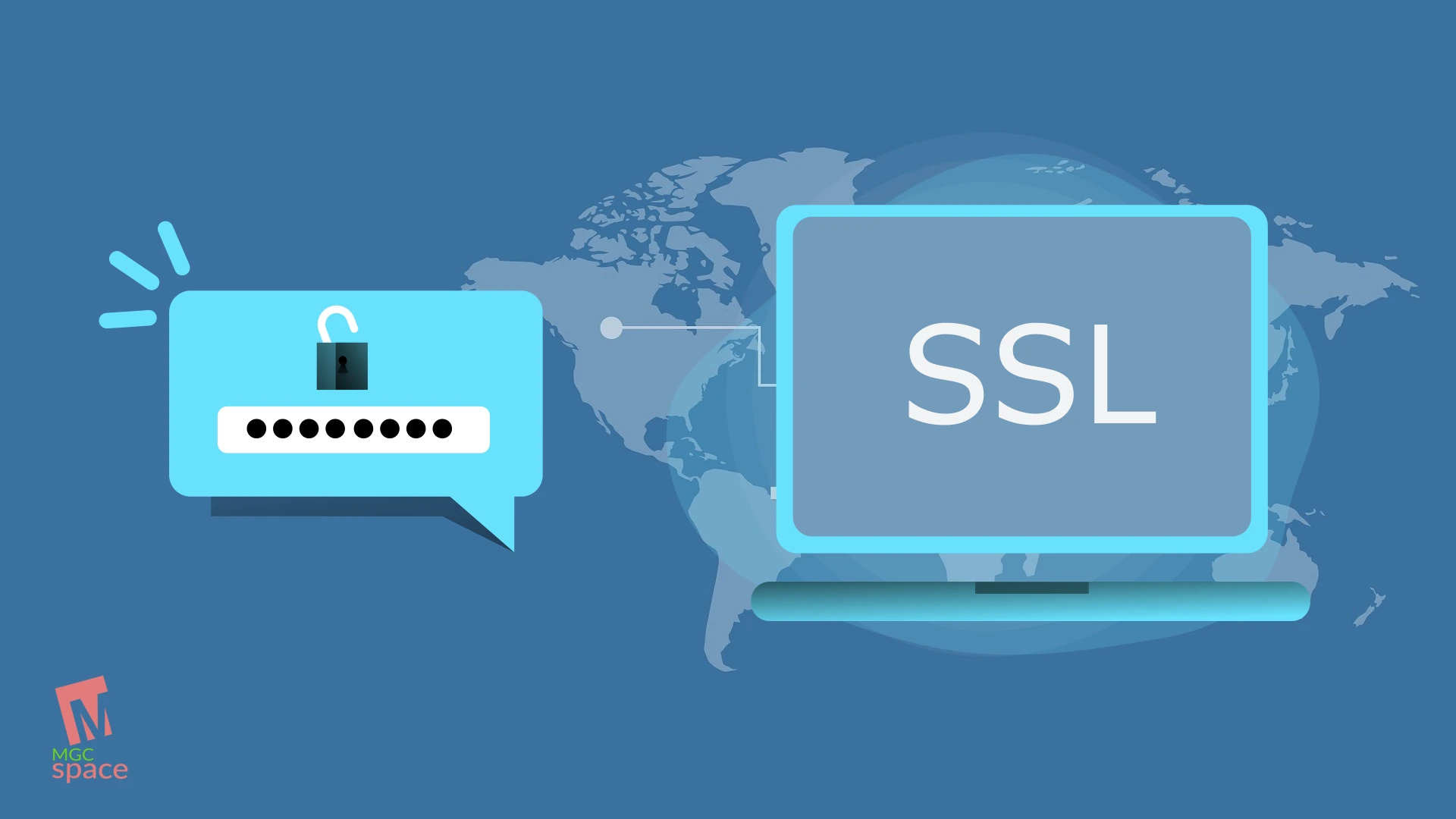When you visit a website, you might not think about how your data is protected from hackers or other malicious parties. But there is a technology that helps to keep your information safe and secure: SSL certificates. SSL stands for Secure Sockets Layer, and it is a protocol that encrypts the communication between your browser and the website’s server. This way, no one can intercept or tamper with your data, such as your passwords, credit card numbers, or personal details. SSL certificates also verify the identity of the website owner, so you can trust that you are visiting the legitimate site and not a fake one. In this article, we will explain why SSL certificates are important for website security and broad overview how they work.
An SSL certificate is a digital document that connects a website’s identity to a pair of cryptographic keys – a public key and a private key. The public key, found in the certificate, enables a web browser to establish a secure communication session with a web server using TLS and HTTPS protocols. The private key is securely stored on the server and is used to digitally sign web pages and other files like images and JavaScript files.
Here’s a more detailed breakdown of the components and functions of an SSL certificate.
1. Digital Document: An SSL certificate is a digital document that a trusted Certificate Authority (CA) issues. It is a file that contains information about the website for which it is issued.
2. Identity Binding: The certificate ensures that the website or server you are connecting to is authentic by linking its identity to a unique cryptographic key pair.
3. Cryptographic Key Pair:
Once again, a cryptographic key pair in SSL has two parts: a private key and a public key.
Public Key: The public key is a part of the key pair and is included in the SSL certificate. It’s used for encryption and is shared with anyone who connects to the server. When a user’s web browser connects to the server, it uses this public key to encrypt data that can only be decrypted by the server’s private key.·
Private Key: The private key is kept securely on the server and should never be shared. It’s used for decrypting the data that has been encrypted with the public key. The private key is crucial to establish secure, encrypted communication.
5. TLS and HTTPS: The SSL certificate enables the use of the TLS (Transport Layer Security) protocol, which is the successor to SSL (Secure Sockets Layer). TLS provides a secure and encrypted communication channel between a web browser and a web server.
When a website uses an SSL certificate, you’ll see “HTTPS” in the URL, and your browser will display a padlock icon, indicating that the connection is secure.
6. Digital Signatures: The private key is used to digitally sign web pages, images, JavaScript files, and other documents served by the web server. This digital signature ensures that the content hasn’t been tampered with during transmission
The SSL/TLS certificate system is a fundamental component of web security and is essential for ensuring that the data transmitted between a user’s browser and a web server remains confidential and secure. It helps protect sensitive information, such as login credentials and financial transactions, from eavesdropping and tampering by malicious actors.
Look for the following indicators in your browser’s address bar to be sure that a website you are visiting is protected with a trusted SSL/TLS certificate
SSL serves several important purposes, and it is very crucial for websites and online businesses for the following reasons:
1. Data Encryption: SSL encrypts data between a user’s web browser and the web server. This keeps sensitive information like login credentials, credit card numbers, and personal data safe from malicious actors who may intercept the data. Without the encryption key, the data cannot be deciphered.
2. Data Integrity: SSL ensures that data transferred between the user and server remains unchanged during transmission, providing data integrity. This prevents attackers from tampering with the data while it’s in transit.
3. Authentication: SSL Trusted Certificate Authorities (CAs) issue certificates to validate the authenticity of websites or online businesses. When users connect to an SSL-secured website, they can be confident that they are communicating with the intended entity and not a fraudulent one. This is essential for establishing trust with your online audience.
4. Search Engine Rankings The SSL-secured website plays a crucial role in SEO by improving search engine rankings and user trust. Certainly, here are the benefits of having an SSL-secured website in points regarding its impact on SEO.
Improved Search Engine Rankings: SSL-secured websites are favored by search engines, which can lead to higher rankings in search results.
Enhanced User Trust: SSL encryption builds trust among users, making them more likely to engage with your site and trust your brand.
Reduction in Security Warnings: SSL eliminates browser warnings about insecure connections, reducing bounce rates and ensuring a smoother user experience.
Credibility and Trustworthiness: The presence of the padlock symbol and “https” in the URL enhances your website’s credibility, contributing to better SEO performance.
Positive User Experience: SSL not only protects data but also provides a more secure and positive user experience, encouraging longer visits and increased user interactions
5. Browser Security Warnings: Modern web browsers, like Chrome and Firefox, now label non-SSL websites as “Not Secure.” When users see this warning, they are less likely to trust your website and may leave, potentially harming your online business’s reputation and credibility.
6. Compliance and Data Protection Laws: Websites must protect user data to comply with data protection laws in many countries and regions, such as the GDPR in the EU. Meeting these compliance standards requires having SSL encryption.
7. Secure Transactions: If your online business involves e-commerce or any kind of financial transactions, SSL is essential to protect the sensitive financial data of your customers. Customers are more likely to make purchases on websites that display the padlock symbol (indicating SSL security) and are more likely to trust their financial information to a secure website.
8. Protection from Man-in-the-Middle Attacks: SSL is essential for protecting data transfer. If SSL is not used, attackers can intercept and manipulate communication between the user and server, compromising the privacy and security of the data.



